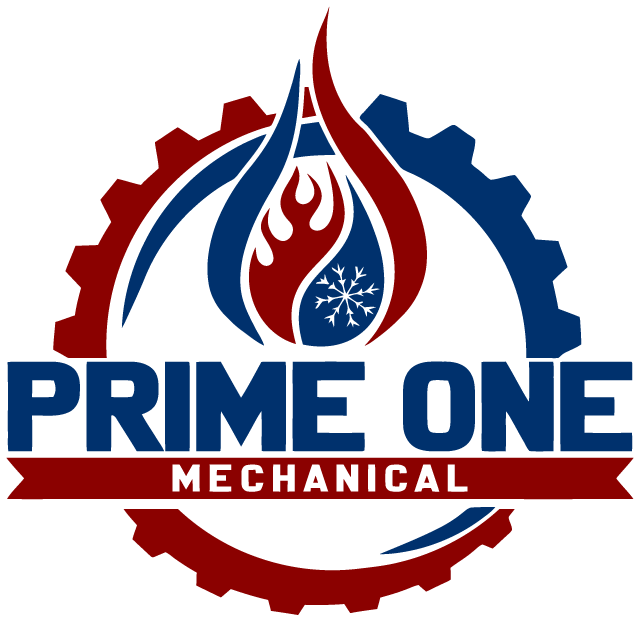When it comes to HVAC repair costs, the old saying that ‘an ounce of prevention is worth a pound of guarantee’ rings true. But what practical steps can you take to keep those expenses in check?
By exploring key maintenance practices and smart strategies, you can equip yourself with the tools to minimize unexpected repair bills and make sure your HVAC system operates efficiently.
Stay tuned to uncover these essential tips that will not only save you money but also enhance the longevity of your heating and cooling equipment.
Regular Maintenance Checks
For best HVAC system performance and longevity, regular maintenance checks are essential. Scheduling routine inspections can have a major impact on the efficiency and lifespan of your system.
During these checks, technicians will assess various components such as the thermostat calibration, electrical connections, refrigerant levels, and overall system functionality. Identifying and addressing potential issues early can prevent costly repairs down the line.
Additionally, proper maintenance can optimize energy efficiency, saving you money on utility bills. By staying proactive with your HVAC system care, you guarantee that it operates smoothly and reliably, providing you with comfort and peace of mind.
Trusting in the expertise of professionals to conduct thorough maintenance checks will ultimately benefit both your system’s performance and your wallet.
Air Filter Replacement
To maintain best performance and efficiency of your HVAC system, regular air filter replacement is essential. Air filters play a vital role in trapping dust, dirt, and other particles to keep the air clean and prevent debris from entering the system.
Over time, these filters can become clogged, reducing airflow and forcing the HVAC system to work harder, leading to increased energy consumption and potential system malfunctions. By changing your air filters every 1-3 months, depending on usage and filter type, you guarantee ideal airflow and efficiency.
This simple maintenance task not only improves indoor air quality but also extends the lifespan of your HVAC equipment, ultimately reducing the need for costly repairs.
Outdoor Unit Maintenance
Regular maintenance of your outdoor HVAC unit is important for best performance and longevity.
To guarantee ideal operation, start by regularly checking and cleaning the unit’s exterior. Remove any debris, such as leaves, dirt, or grass clippings, that may obstruct airflow. Inspect the unit for any signs of damage or corrosion, especially on the coils or fan blades. Additionally, trim back any vegetation or shrubbery around the unit to allow for proper ventilation.
It’s essential to schedule professional maintenance at least once a year to inspect and clean internal components like the coils, fins, and refrigerant lines. This proactive approach can prevent costly repairs and extend the lifespan of your outdoor HVAC unit.
Programmable Thermostat Installation
Inspecting your outdoor HVAC unit regularly is essential to guarantee peak performance and longevity, and now, let’s explore the process of ‘Programmable Thermostat Installation’. Installing a programmable thermostat can greatly enhance your HVAC system’s efficiency.
Begin by turning off power to your HVAC system. Remove the existing thermostat and label the wires according to the instructions. Mount the new thermostat base and connect the labeled wires. Make sure the thermostat is level to guarantee accurate temperature readings. Complete the installation by attaching the thermostat faceplate and restoring power.
Programming your new thermostat to fit your schedule will optimize comfort and energy usage. Seek professional assistance if needed to ensure precise installation for maximum benefits.
Duct Sealing and Insulation
For best HVAC system performance and energy efficiency, ensuring proper duct sealing and insulation is essential.
Here are four key reasons why duct sealing and insulation are critical:
- Prevents Air Leaks: Sealing ducts helps in maintaining the desired temperature in your living spaces.
- Improves Air Quality: Properly sealed ducts reduce the entry of dust, allergens, and pollutants into your home.
- Enhances Efficiency: Insulating ducts prevents energy loss, lowering your utility bills.
- Increases Comfort: Well-sealed and insulated ductwork ensures consistent airflow, creating a more comfortable indoor environment.
Frequently Asked Questions:
How Can I Improve the Efficiency of My HVAC System Without Replacing It?
To improve HVAC efficiency without replacement, guarantee regular maintenance, clean filters, check ductwork for leaks, calibrate thermostats, seal gaps, utilize programmable thermostats, and maintain proper insulation. Implementing these steps helps optimize performance and reduce energy costs.
Are There Any DIY Maintenance Tasks I Can Perform to Help Prevent Costly Repairs?
Performing regular maintenance tasks like cleaning or replacing air filters, checking thermostat settings, clearing debris around outdoor units, and scheduling professional tune-ups can help prevent costly HVAC repairs. Stay proactive to guarantee system efficiency.
What Are Some Common Signs That Indicate My HVAC System May Need Professional Attention?
If your HVAC system shows signs like inconsistent temperatures, strange noises, or weak airflow, it may need professional attention. Addressing these issues promptly can prevent larger problems and guarantee your system operates efficiently.
How Can I Extend the Lifespan of My HVAC System to Avoid Premature Replacements?
To extend your HVAC system’s lifespan, prioritize regular maintenance, switch filters as recommended, guarantee proper insulation, and address any issues promptly. Schedule professional tune-ups annually, keep the area around the unit clear, and monitor performance regularly.
Are There Any Rebates or Incentives Available for Upgrading to a More Energy-Efficient HVAC System?
To upgrade to a more energy-efficient HVAC system, you can explore rebates and incentives available. Such upgrades not only reduce energy costs but also enhance your system’s performance, comfort, and overall efficiency.
Conclusion
Optimal, by implementing regular maintenance checks, replacing air filters, maintaining outdoor units, installing a programmable thermostat, and sealing ducts, you can effectively reduce your HVAC repair costs.
These proactive measures will help prevent costly breakdowns and extend the lifespan of your heating and cooling systems.
With a strategic approach to HVAC maintenance, you can save money in the long run and enjoy a more efficient home comfort system.
Take control of your HVAC expenses and prioritize cost-effective solutions for optimal performance.
